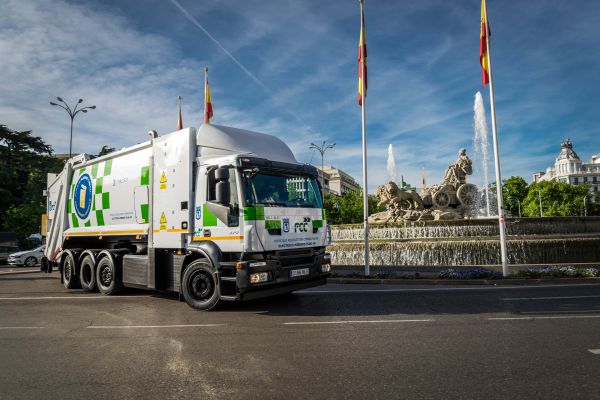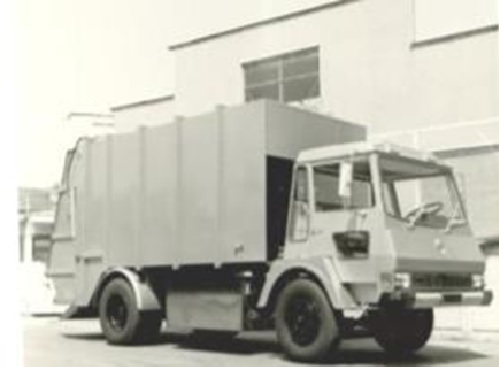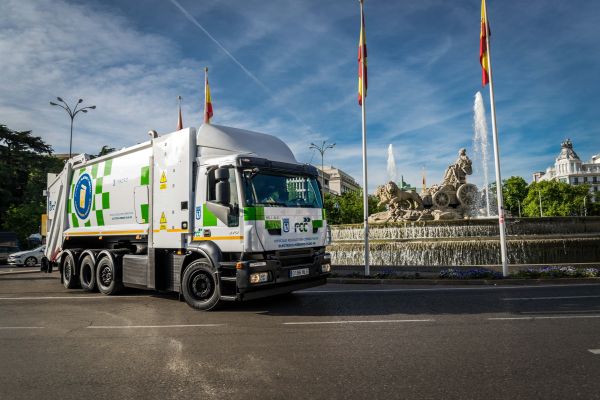FCC celebrates more than 40 years committed to electric mobility for municipal services

Today, FCC Medio Ambiente (the Spanish brand for FCC Environment) celebrates more than 40 years’ commitment to energy efficiency and the introduction of electric vehicles for the provision of environmental services. With more than 115 years’ history in providing urban services, FCC has been a pioneer in research into and the introduction of new sustainable and efficient technologies. In 1974 the company developed and put into service the first electric powered lorry to collect solid urban waste.
FCC Group’s environmental services area, known as FCC Medio Ambiente, currently has a fleet of nearly 12,000 urban service vehicles equipped with the most innovative systems on the market. 550 vehicles in this fleet are either electric, hybrid or self-recharging electric with exclusive FCC technology. It is the most advanced technology that exists for collection services, and is the result of research carried out over more than 40 years through its Machinery Department which has, since its origins, invested in projects designed to achieve more comfortable and sustainable cities.
The electric vehicle fleet provides a service with a lower environmental impact and achieves various fundamental advantages: it does not pollute, its emissions are zero referred to the energy consumed and sound emissions are within the lowest technically possible limit, especially during start-up, braking and in the use of the bodywork. FCC's technology reaches these advantages without losing power or load capacity performance compared to a vehicle with a conventional diesel engine. It also delivers a much higher energy efficiency since it provides a substantial energy saving of between 70 and 80% compared to internal combustion engines, which in turn means lower operating costs and increased service life.
The most advanced technology for collecting waste in cities
Today, FCC Medio Ambiente is one of the world's largest environmental services companies and has been undertaking its activity since 1911 when it was awarded the contract for cleaning and conserving the sewerage system in Barcelona, which it continues to provide. Since July 2016 in this contract, FCC has been using the first complete fleet of 100% electric vehicles with 13 sets of specialised machinery on heavy trucks, 28 sets of specialised machinery in vans, as well as an additional 15 vans. It is a clear practical case of eco-efficient engines, and an engineering project with electrical technology carrying the FCC stamp.
FCC's research into electric vehicles is framed within the set of actions the Group has committed to in fighting climate change. These actions translated in 2016 into avoiding the emission of nearly 480,000 tonnes of CO2, increasing the use of alternative energies by 18% and generating 29% more energy from renewable fuels in its projects.
The challenge to FCC is to continually improve, to keep on reducing the environmental impact and to improve the public’s quality of life. The development and implementation of new technologies is increasingly important and this is why FCC Medio Ambiente continues, after more than a century, to invest and seek innovative solutions to the benefit of the environment and of society.
About FCC
FCC Medio Ambiente, the environmental services area of FCC Group, has been operating for more than 100 years and has built its success on the basis of a commitment to innovation and to helping cities to become more intelligent, sustainable and socially responsible. It currently serves almost 59 million people in more than 5,000 municipalities in 13 countries. Its network, which exceeds 200 recycling and recovery facilities, annually processes 24 million tonnes of waste as a resource, including 10 Waste to Energy (WtE) plants with an annual treatment capacity of more than 2.6 million tonnes and 300 MW of electrical power.
The company recorded outstanding successes in 2017. It was awarded waste treatment contracts in the cities of Garland, Mesquite and Rowlett in Texas, the recyclable materials of which will be processed in FCC’s Dallas MRF plant. In Rowlett it will also provide waste collection services. The EnviRecover WtE plant was officially inaugurated in June 2017, serving the counties of Worcestershire and Herefordshire in the United Kingdom. The construction of the recycling and energy recovery centre in Edinburgh and Midlothian, also in the United Kingdom, is progressing at a good pace. In September 2017, FCC was also awarded the contract for waste collection and street cleansing in the city of Bilbao, serving a population of nearly 350,000 inhabitants for an order book value of €173.4 million.

Barcelona 1974, first electric vehicle with a lead battery

Madrid 2017, self-recharging electric vehicle with lithium ion batteries








